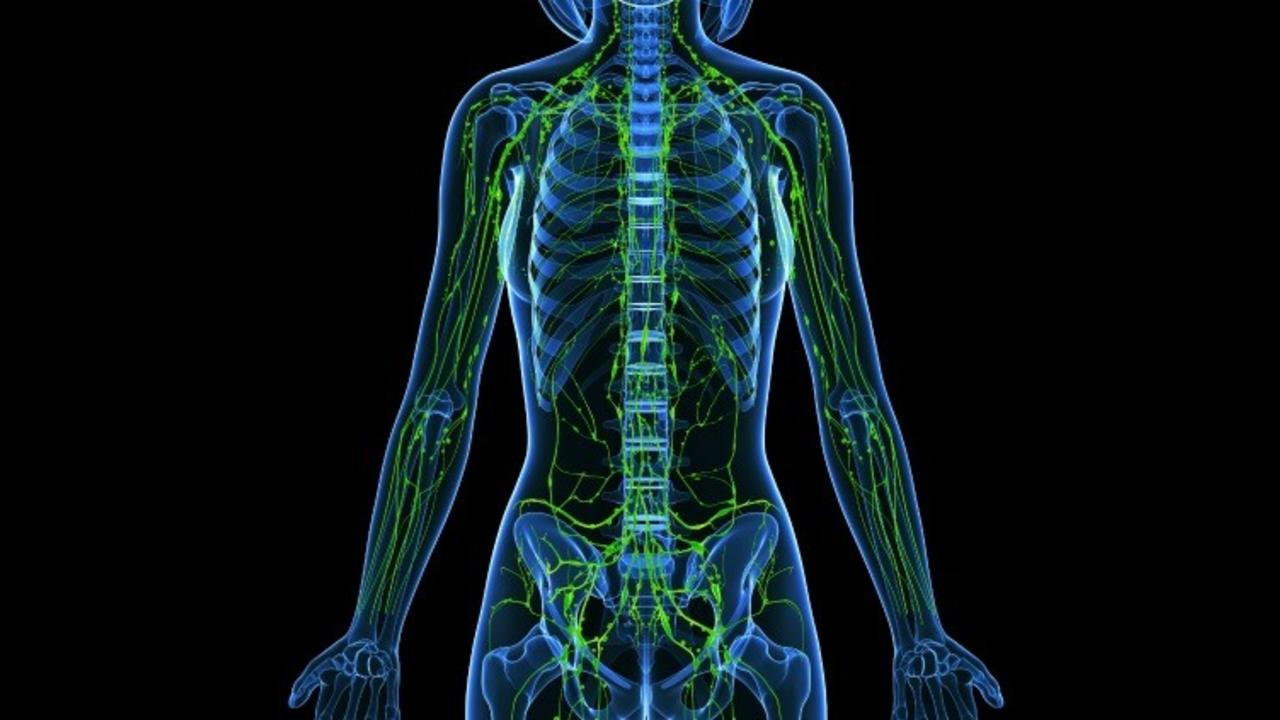The Great Lymphatic System of the Body

The Lymphatic System
The most commonly associated medium for circulation in the body is through our blood via the arteries and veins. Less commonly focused upon is the lymphatic system. It is sometimes explained that if our bodies were like a city, then the lymphatic system would be the garbage company, sewage system, and police force all comprised into one system. The lymphatic system is composed of organs, ducts, and nodes that assist in the transportation of lymph fluid released from our blood plasma and recycles it back into the blood. This fluid helps with the circulation of blood in order to drain fluids from the cells and bodily tissues along with sending out immune cells through out the body. The blood delivers oxygen and nutrients to the cells while the lymph fluid removes waste products from the cells. If you can imagine a natural river washing away trash, then apply this same concept to our bodies. The lymph is bathing our cells and washing the accumulated waste so long as the body is kept in high regard. The Lymph system acts as a drainage system, using lymph vessels to extract excess fluids from the body tissues. Swelling will occur when there is chronic lymph fluid backed up in one region of the body. This condition indicates a blockage of blood and lymph transportation, usually resulting from a poor diet, calcium-phosphate crystals and/or scar tissue from old injuries. It is crucial to keep our lymphatic system in circulatory flow. When lymph fluid builds up excessively like this, proteins, lipids, and other molecules leak out of tiny capillaries into nearby body tissues.
There is an estimated 5.5 gallons of lymph fluid in the human body- that equates to almost 3 times the amount of blood in the body. The lymph fluid circulates through the body unidirectionally(one-direction) up to the neck area. Women must pay special attention to this as they are more susceptible to this issue due to menstrual cycles. An excessive loss of blood can lead to anemic conditions which is a lower than normal red blood cell count, usually leading to iron deficiencies among other complications. The quality of our lymphatic function will determine the quality of our blood and intracellular communication among cells.
One of the main functions of our lymphatic system is the regulation and optimization of our immune system. We have lymph nodes, an oval-shaped organ, that resides along a network of lymphatic vessels distributed through out the body. These nodes are designed to filter out foreign particles or molecules to maintain the performance of the immune system. The lymph nodes contain white blood cells called lymphocytes that produce certain antibodies known as natural kill cells(NK cells) that attack infectious microorganisms. These NK cells serve as a component of our “innate-immune-system”, influencing the fortification of our health and defending us from dangerous infections. The other types of lymphocytes are called T cells and B cells. These lymphocytes are specifically related to our “adaptive-immune-system” or “acquired-immune-system”. The T and B cells serve to identify an “invader” and immediately create cellular responses that are specifically designed for the elimination of the offending pathogen(virus,bacteria,fungus, etc.).
The lymphatic system is not only misunderstood by western medicine, it is falsely approached by surgical interventions. There are four critical organs that are all apart of the lymphatic systems daily mode of operation. The one similarity they have in common, in reference to how the medical model handles them is that, upon the recognition of stagnation or inefficiency the tonsils, spleen, appendix, or lymph nodes are surgically removed. This is a gross misunderstanding and has led to countless unnecessary surgeries, which ultimately impair ones quality of life. These are essentially the sewage treatment facilities of the body where congestion or swelling simply means there is a toxic overload. When any one of these organs become stagnant it is due to decreased lymphatic circulation where in which dietary change, increased water consumption, movement and exercise become the remedy.
We must allow our lymphatic system to keep circulating fluids through out the body in order to maintain good health. The most effective way to re-balance a stagnant lymph system is to consume alkaline green leaves, water rich fruits, perform consistent movement and exercise, and allow the detoxification process to take place. The standard high-fat high-protein diet is responsible for blocking oxygen exchange in our blood and stagnating the lymph fluid’s ability to escort toxic waste from our cells. For this reason, moderate cardiovascular exercise is the prerequisite for lymphatic circulation and could mean the difference between life and death for many Americans.


